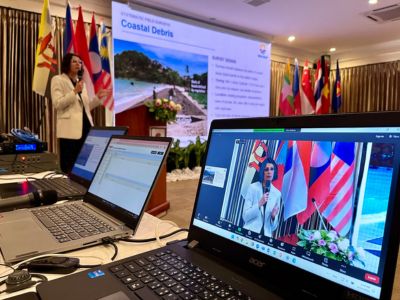Southeast Asia Regional Programme on Combating Marine Plastics (SEA-MaP) Regional Baseline Report: Synthesis Report
Client:
United Nation Office for Project Service (UNOPS)
Location:
Indonesia
Dates:
September 2023 – October 2024
Background:
The Southeast Asia Regional Programme on Combating Marine Plastics (SEA-MaP) aims to reduce plastics consumption, increase recycling, and minimize leakages to prevent land and sea based marine plastics pollution in Southeast Asia. The SEA-MaP Regional Project is divided into two main components: 1) Strengthening Policies and Institutions for Plastics Circularity, 2) and Establishing Regional Platforms for Innovation, Knowledge Sharing, and Partnerships.
Services Provided:
Hatfield supported the development of the Regional Baseline Report and Synthesis Report. These reports provided a knowledge base on the status and impact of plastic pollution in ASEAN member states (AMS) and recommendations to help implement the ASEAN Regional Action Plan for Combatting Marine Debris (ASEAN RAP). Through this initiative, Hatfield developed a comprehensive framework and monitoring and evaluation (M&E) system to help address plastic pollution across its entire life cycle.
The framework focuses on five key indicators: plastic production and consumption, waste generation, waste management, recycling rates, and marine debris. To address existing data gaps, proxy indicators were proposed for interim use while AMS build the capacity for consistent and robust data collection. The project also emphasized strengthening capacity, improving data collection systems, and harmonizing regional efforts to enable a unified approach to managing plastic pollution.
The framework aligns with global standards, including the ongoing negotiations for the International Legally Binding Instrument (ILBI) on plastic pollution, ensuring AMS are well-prepared for international reporting obligations. A phased roadmap was also introduced to guide establishing a regional M&E system and support compliance with international requirements.
By implementing these findings, AMS are equipped with the tools and strategies needed to take coordinated, data-driven actions against plastic pollution, fostering long-term environmental sustainability and enhanced regional collaboration.
